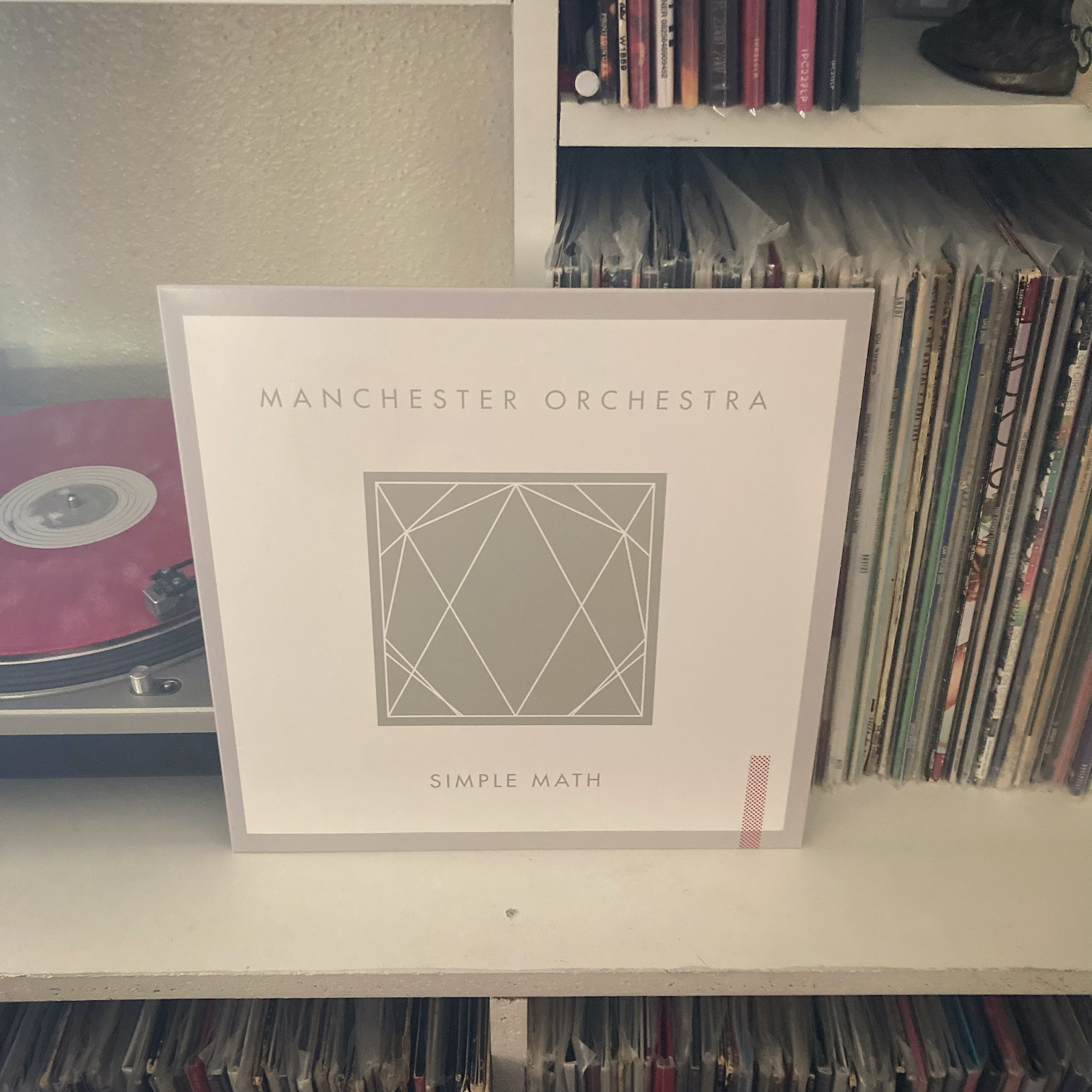
I am a relative newcomer to Manchester Orchestra. Despite hearing their name for the greater part of a decade—often while they were touring with some of my favorite bands—I had never listened to them until last year. However, that proved fortuitous in a way, because my discovery happened just before the repress of Simple Math. My initial inquiries suggested that this album was the fan favorite, but high prices on the resale market caused me to ignore it for a bit…which explains my backward path through their discography.
Based on that trajectory, both A Black Mile to the Surface and Cope were far poppier and folkier than I was expecting based on their reputation. Simple Math, however, starts to bring the picture into focus a bit more, marking a turning point from the band’s scrappy origins to their big-budget sheen of newer albums.
It’s proven difficult to map out the trajectory of Andy Hull & Co’s career. There have been moments that I’ve thought they followed the typical career path from ragged punk band to slick pop production, but the deeper I go, the less accurate that seems. Cope, for instance, had moments that were rawer than this record. Similarly, their new album (on deck for the next post) has a lot more rock and roll than Black Mile, no matter how much electronics it’s covered in.
Context aside though, each of those albums can be fit with a succinct summary: the rock album, the folk record, the electronica album. Simple Math isn’t quite as neat though. This record plays like a kaleidoscopic overview of Manchester Orchestra’s entire career, uniting their heaviest, catchiest, punkiest, and folkiest moments into a single musical experience.
“Deer” makes Black Mile feel like a return to form with major keyed, fingerpicked acoustic guitars and humorously self-deprecating lyrics. Before the chords even have a chance to fade out, “Mighty” immediately kicks down any expectations set by the opener with thick, crunchy guitar chords and pounding drums. But as loud as that song gets and as harshly as the guitar squeal, there’s still a string section filling out the space.
It’s not an outlier either. Orchestral flourishes touch nearly every song here, from the huge horn section on the practically pop punk “April Fool” to the children’s choir and brass band on the dark and looming “Virgin.”
Production touches aside, the album also reaches for a number of different genres. The verses of “Pale Black Eye” play with a blues rock bounce that would turn to schlocky dad rock in less capable hands. Closer “Leaky Breaks” is informed by early sixties rhythm & blues. “Pensacola” pulses with a punk energy and a synthesizer lead line. But through all of the shifts in mood, production, and genre, the album remains cohesive, united by Andy Hull’s unmistakable voice and strong songwriting.
The centerpiece of the album—both in track order and as a sort of sonic North Star—is the title track, a dark and slinking ballad that builds to an explosively cathartic climax with violins and machine-gun drum fills trying to outpace one another.
However, the title of “best song” shifts as you listen to the record. An argument could be made for every track, no matter which extreme of Manchester Orchestra’s sound you typically gravitate toward. And now that I’ve gotten to know this album (ten years late), it makes perfect sense what all the fuss has been about.
Pingback: Record #790: Manchester Orchestra - The Million Masks of God (2021) - A Year of Vinyl